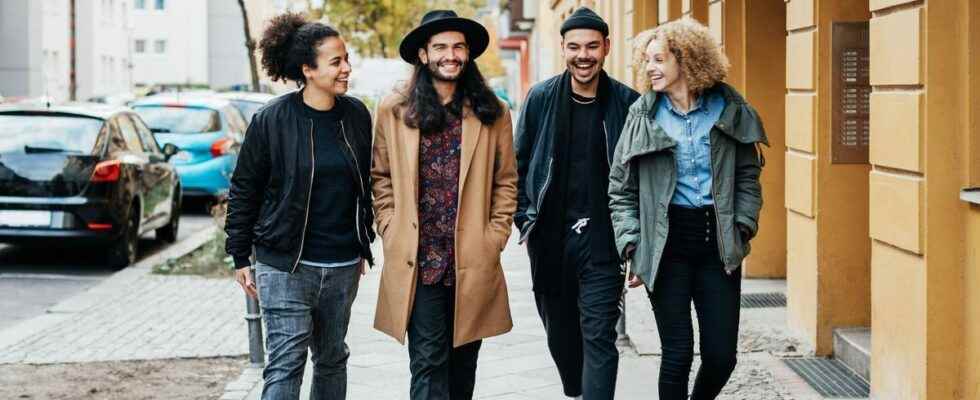Posted ,
Reading 3 mins.
To find friends with whom to go to the museum, to go for a walk or to party, many of them today use friendly dating applications, two years after the start of the pandemic which disrupted social ties.
These platforms want to fight against social isolation, which affects a growing number of people, especially since the Covid crisis. First name, age and areas of interest: you create your profile there in a few clicks, like on dating sites.
For Mohamed, 29, this is a way “nice” to meet new people, around activities. A framework for discussing “easier”according to this IT consultant in the Paris region.
Launched in 2002, the pioneer of the Meetup sector thus offers to join online thematic groups which organize collective activities. “Meetup has long been about learning and technology, but that’s changing”told AFP its director general, David Siegel. “People now just want to meet new people and build relationships”.
Searches for the keyword “friends” exploded on this social network during the pandemic, as did its number of users; they are more than 59 million in the world, mainly between 30 and 45 years old.
The Covid-19, a real “universal trigger”
Swipe a profile we like to the right – like for dating – then start a friendly chat if the person has done the same. Bumble For Friends (BFF), created in 2016 and dedicated to friendship, “has grown considerably” last year, says Naomi Walkland, vice president Europe of Bumble, one of the most famous dating applications.
In the current context of lesser restrictions, she notes on the application a “new interest” for activities “several”after two years “particularly lonely for many”.
The pandemic and periods of confinement “have accentuated the feeling of loneliness” everywhere in the world, confirms Cécile Van de Velde, professor of sociology at the University of Montreal. In Canada, France, Israel and the United Kingdom, studies have shown that young people have been particularly affected, she said.
A third of French people aged 15 to 30 showed a feeling of loneliness last year, compared to 21% of the entire French population, according to a study by the Fondation de France.
Does the lonely effect of the pandemic persist today? “We don’t know yet, surveys will analyze whether people manage to find friendly ties or lock themselves in chronic loneliness”explains Van de Velde.
For the young, as for the older ones, the challenge is now to renew ties.
“The Covid was a universal trigger”believes Alae Elhayyate, founder of Frimake, which has offered since 2019 to participate in group activities near home, organized by individuals. “Everyone realized that they had to enjoy life”.
The number of Frimake users has “soared” after each deconfinement, underlines the Toulouse entrepreneur. It now reaches 150,000, mostly people between the ages of 25 and 45.
Good in your body, good in your head!
A sincere need for novelty
Alex, 33, signed up a year ago, when shops and leisure venues reopened in France. “I really needed to go out and meet people”remembers this Ile-de-France resident.
Using the app to participate or organize outings is since “became almost an addiction” for the young man. “I connect almost every day, I always want to meet people and discover new places”he testifies.
Rebuilding a friendly network after a move or a separation, finding people available for an activity when her usual friends are not… Various reasons, often of a practical nature, lead to registering on these applications, according to Anne -Sylvie Pharabod, sociologist at Orange, who conducted research on the community of the friendly dating site “We will leave”.
Can these meetings via the Internet give rise to a lasting friendship?
As with any relationship, “everything depends on the ability of people to maintain the link and to meet again“, believes Ms. Pharabod. To achieve this, we must “take the person out of the specific context in which we met him and include him in his network” in real life, she recommends.

